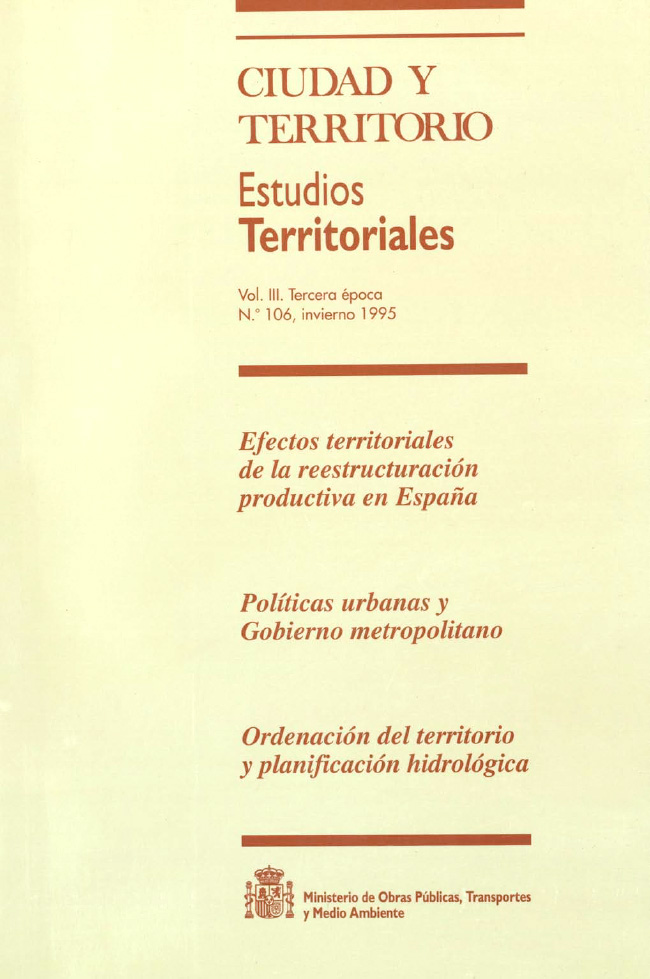The effects on territory of productive re-structuring in Spain
Abstract
The paper has it that Spain's productive system is undergoing an accelerated structural transformation due to those strategies elaborated to accommodate multi-form contextual change itself born of those conditions and competitive capacities with which each of her territories must face the new spatial distribution of labour now making itself manifest. Basing itself upon the author's own studies and a synthesis of other recent works on the subject, the paper suggests an overall system for interpreting these presently observed processes and then makes an analysis of the unequal regional impact of their being opened up to the outside world, technological advances, economic and job sharing, production de-cent ralization and the relocation of industries, in this drawing special attention to those qualitative indicators that highlight those new forms of inequality associated with a re-structuring of the system as such.
Downloads
Downloads
Published
How to Cite
Issue
Section
License
Copyright (c) 1995 Inmaculada Caravaca Barroso, Ricardo Méndez Gutiérrez del Valle

This work is licensed under a Creative Commons Attribution-NonCommercial-NoDerivatives 4.0 International License.
Considering the provisions of the current legislation on Intellectual Property, and in accordance with them, all authors publishing in CyTET give -in a non-exclusive way and without time limit- to the Ministry of Transport, Mobility and Urban Agenda the rights to disseminate, reproduce, communicate and distribute in any current or future format, on paper or electronic, the original or derived version of their work under a Creative Commons Attribution-NonCommercial-NoDerivative 4.0 license International (CC BY-NC-ND 4.0), as well as to include or assign to third parties the inclusion of its content in national and international indexes, repositories and databases, with reference and recognition in any case of its authorship.
In addition, when sending the work, the author(s) declares that it is an original work in which the sources that have been used are recognized, committing to respect the scientific evidence, to no longer modify the original data and to verify or refute its hypothesis. Author(s) also declare that the essential content of the work has not been previously published nor will it be published in any other publication while it is under evaluation by CyTET; and that it has not been simultaneously sent to another journal.
Authors must sign a Transfer of Rights Form, which will be sent to them from the CyTET Secretariat once the article is accepted for publication.
With the aim of promoting the dissemination of knowledge, CyTET joins the Open Journal Access (OA) movement and delivers all of its content to various national and international indexes, repositories and databases under this protocol; therefore, the submission of a work to be published in the journal presupposes the explicit acceptance by the author of this distribution method.
Authors are encouraged to reproduce and host their work published in CyTET in institutional repositories, web pages, etc. with the intention of contributing to the improvement of the transfer of knowledge and the citation of said works.








 Enlace a CyTET en Linkedin
Enlace a CyTET en Linkedin